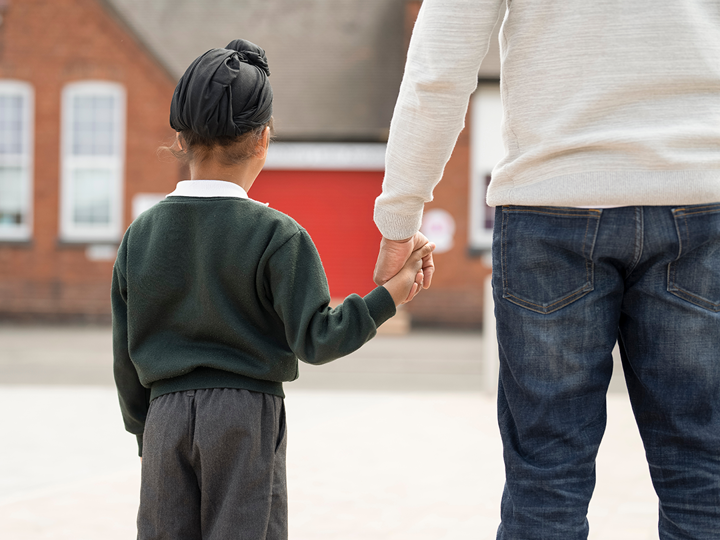Supporting primary school children
- 5-11 Years
- Behaviour, emotions and mental health

Explore the topics on this page:
Fears and worries
Who the support is aimed at
Children can sometimes experience feelings of worry, fear and panic. This support is for parents and carers who have primary school aged children who may be:
- anxious, such as being afraid to separate from their parent or carer
- fearful of certain situations
- worrying about issues such as friendships or schoolwork
Evidence shows that parents and carers are best at supporting their primary aged child with fears and worries. We can help to equip parents and carers with the tools and skills needed to do this.
Support we can offer
We offer parents and carers 6 to 8 sessions. These sessions involve guided self-help, Cognitive Behaviour Therapy (CBT) based intervention. This is offered 1:1 either in person or online via a video call. Sessions include:
- psychoeducation
- supporting your child to face their fears
- supporting you to help build your child’s confidence to tackle their worries
- a step-by-step plan to overcome fears
- problem solving
It is important to practice the new tools and skills with your child between sessions. This will help the intervention to work as best it can.
Behaviour difficulties
Who the support is aimed at
This support is for parents and carers who have primary school aged children up to 9 years old who are showing mild behavioural difficulties.
Evidence shows that parents and carers are best at supporting their primary aged child with these difficulties. We will help to equip parents and carers with the tools and skills needed to do this.
Support we can offer
We offer parents and carers 6 to 8 sessions. These sessions involve guided self-help. This is offered 1:1 either in person or online via a video call. Sessions include:
- learning about your child and their behaviour
- improving your relationship and using positive communication
- building self-esteem and improved behaviour through targeted praise
- using routines and boundaries to set appropriate limits for your child
- reducing problematic behaviour
- supporting emotional regulation in your child
It is important for you to practice the new tools and skills with your child between sessions. This will help the intervention to work as best it can.
Who to contact in a crisis
If you think your child is experiencing a mental health crisis call NHS 111 and select the mental health option to speak to an NHS professional.
For life-threatening emergencies call 999.
Last reviewed: 4 December, 2024
